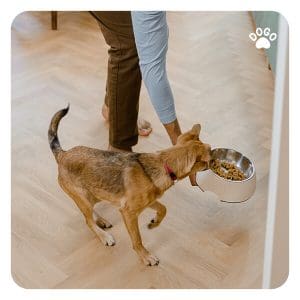
Every puppy is unique, and their ability to grasp and adapt to house training can differ. However, on average, it takes about four to six months to fully house-train a puppy. This time frame allows for the necessary repetition, reinforcement, and consistency required for your puppy to understand and follow the house training routine.
The success of house training largely depends on your commitment and dedication to the process. Consistency is key – establishing a routine and sticking to it will help your puppy understand what is expected of them. Remember, puppies have small bladders, so they will need to go outside frequently. Initially, you may have to take your puppy outside every hour or two, including after meals, playtime, and naps. Gradually, as your puppy grows and gains better bladder control, you can extend the time between bathroom breaks.
To effectively house-train your puppy, it is crucial to keep a watchful eye on them, especially during the initial stages. Supervision allows you to catch any signs that your puppy needs to eliminate and redirect them to the appropriate spot outside. Signs such as sniffing, circling, or restlessness often indicate that your puppy needs to relieve themselves. By promptly taking them to the designated area, you reinforce the desired behavior and prevent accidents indoors.
Accidents are an unavoidable part of the house training process, especially during the early stages. Instead of scolding or punishing your puppy for accidents, which can create fear and confusion, focus on positive reinforcement. Praise and reward your puppy when they go outside, reinforcing the idea that going outside is a desirable behavior. This positive association will help your puppy understand where they should go and encourage them to repeat the behavior.
Consistency also applies to the designated elimination area. Choose a specific spot outside where you want your puppy to go, and consistently take them there. The scent of their previous eliminations will help them associate that spot with the appropriate behavior. Be sure to thoroughly clean any indoor accidents with an enzymatic cleaner to remove the odor, as residual smells can confuse your puppy and lead to repeated accidents in the same spot.
As the house training process progresses, your puppy will start to develop better bladder control and understand the routine you’ve established. You can gradually increase the amount of freedom you give them indoors, allowing them access to additional rooms under your supervision. If accidents occur during this phase, it may be an indication that your puppy needs more time before being granted more freedom.
Remember, each puppy is unique, and some may learn faster or take a bit longer to become fully house-trained. Stay patient, consistent, and positive throughout the process. Celebrate small victories and be prepared for occasional setbacks. With time, effort, and lots of love, you will successfully house-train your puppy and lay the foundation for a lifetime of good habits and a happy coexistence.






